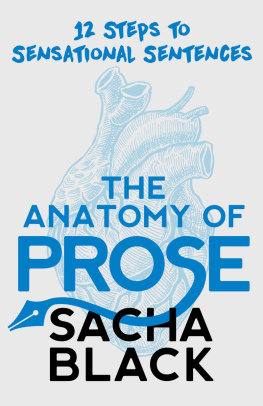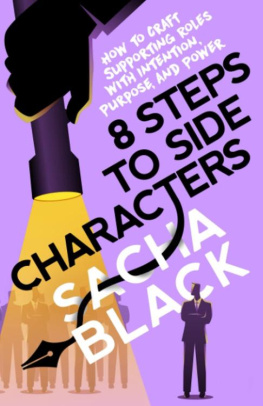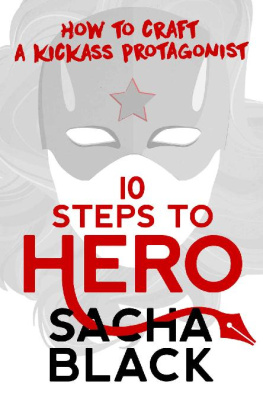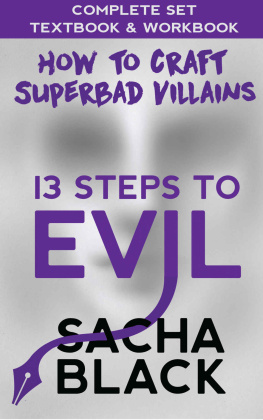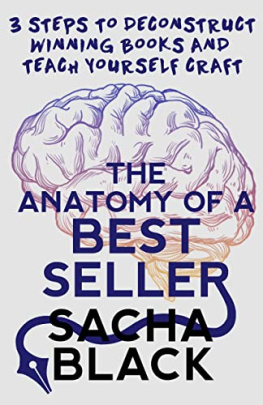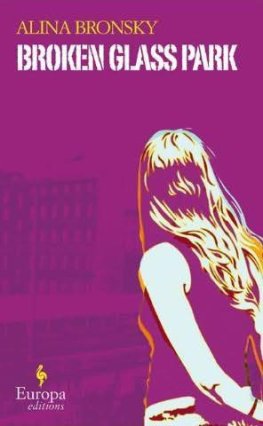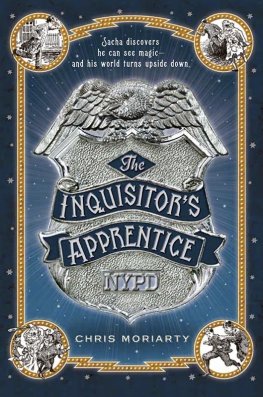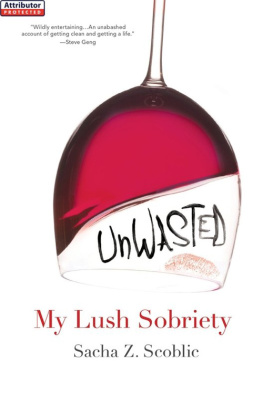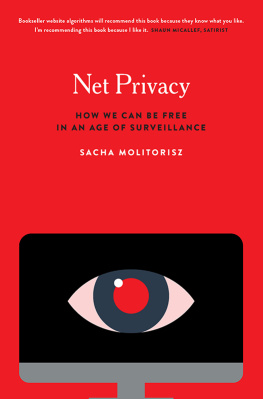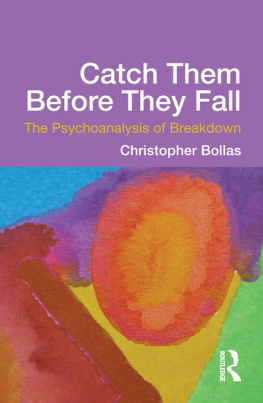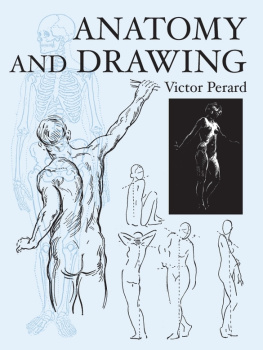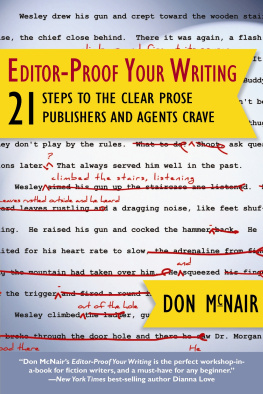Sacha Black - The Anatomy of Prose: 12 Steps to Sensational Sentences
Here you can read online Sacha Black - The Anatomy of Prose: 12 Steps to Sensational Sentences full text of the book (entire story) in english for free. Download pdf and epub, get meaning, cover and reviews about this ebook. year: 2020, publisher: Sacha Black, genre: Romance novel. Description of the work, (preface) as well as reviews are available. Best literature library LitArk.com created for fans of good reading and offers a wide selection of genres:
Romance novel
Science fiction
Adventure
Detective
Science
History
Home and family
Prose
Art
Politics
Computer
Non-fiction
Religion
Business
Children
Humor
Choose a favorite category and find really read worthwhile books. Enjoy immersion in the world of imagination, feel the emotions of the characters or learn something new for yourself, make an fascinating discovery.
- Book:The Anatomy of Prose: 12 Steps to Sensational Sentences
- Author:
- Publisher:Sacha Black
- Genre:
- Year:2020
- Rating:4 / 5
- Favourites:Add to favourites
- Your mark:
- 80
- 1
- 2
- 3
- 4
- 5
The Anatomy of Prose: 12 Steps to Sensational Sentences: summary, description and annotation
We offer to read an annotation, description, summary or preface (depends on what the author of the book "The Anatomy of Prose: 12 Steps to Sensational Sentences" wrote himself). If you haven't found the necessary information about the book — write in the comments, we will try to find it.
Sacha Black: author's other books
Who wrote The Anatomy of Prose: 12 Steps to Sensational Sentences? Find out the surname, the name of the author of the book and a list of all author's works by series.
The Anatomy of Prose: 12 Steps to Sensational Sentences — read online for free the complete book (whole text) full work
Below is the text of the book, divided by pages. System saving the place of the last page read, allows you to conveniently read the book "The Anatomy of Prose: 12 Steps to Sensational Sentences" online for free, without having to search again every time where you left off. Put a bookmark, and you can go to the page where you finished reading at any time.
Font size:
Interval:
Bookmark:
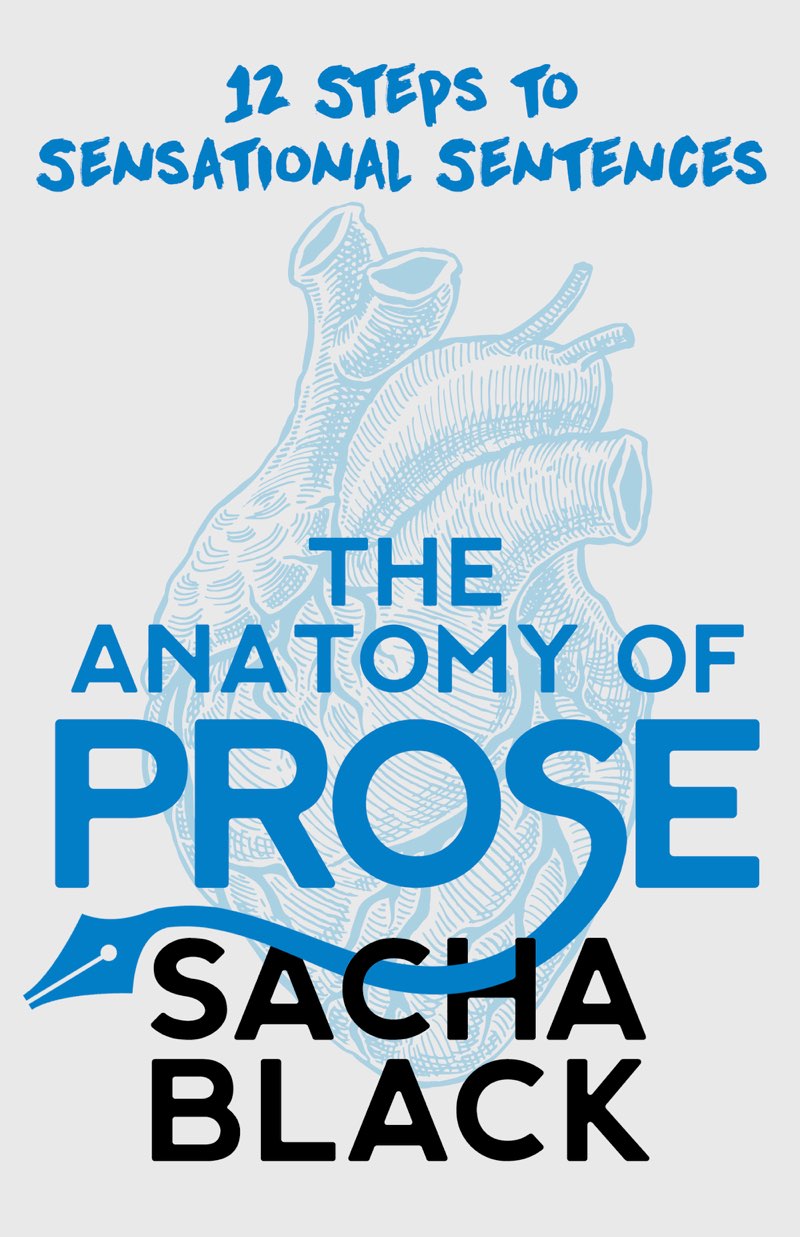

The Anatomy of Prose: 12 Steps to Sensational Sentences
Copyright May 2020 Sacha Black
The right of Sacha Black to be identified as the author of this work has been asserted in accordance with the Copyright, Designs and Patents Act 1988.
All rights reserved. No part of this publication may be reproduced, stored in any retrieval system, copied in any form or by any means, electronic, mechanical, photocopying, recording or otherwise transmitted, without permission of the copyright owner. Except for a reviewer who may quote brief passages in a review.
First Published March 2020, by Atlas Black Publishing
Cover design: Andrew Brown, Design for Writers
www.sachablack.co.uk
All rights reserved
For all the writers out there with rebellion in their hearts
I see you.
This ones for you.
Where I ask you to whip out your inner diva, we discover Mozart and Metallica arent all that different, we pour ourselves a swift gin, build a castle of commas, and understand whether this book is for you.

Come now, my little wordsmiths. Let me wrap my inky fingers around you and pull you down my rabbit hole. Writers get awfully caught up in worrying about this rule or that rule. Which is exactly why I start the majority of my craft books talking about how important it is for you to chuck the rule book in the fuck-it bucket and move on.
The problem is, the more granular you get with craft advice the higher the expectation is for one to dish out rules like its candy on Halloweenand can you get a more granular topic than the art of prose?
Well, let me assure you, it aint Halloween, and Im not the Candyman. Rules are for breaking. I dont know about you, but rules have a nasty habit of provoking my inner rebel. I see one and have an instant need to break it, burn it, and dissolve it into ash and dust.
Prose is art. All art is subjective, you dont need me to tell you that. Some of us might want to wear glitter-spangled pants on a Friday night whilst drizzling gin and popping candy on our nippleswhat? It tingles. But the point is, whatever floats your boat is okay. One persons Mozart is anothers Metallica. Its all art, baby. You might like purple prose or the cleanest, most clinical sentences known to man. Honestly, thats fine. No ones going to scold you for an adverb fetish; I mean, I dont want to read it, but theres an audience out there for everyone.
Im saying this here because as you read through this book, Im probably going to throw out some you should do this or doing that is bad because. Lets all be grown-upsbefore you send me ranty emails, take my must-dos and must-not-dos with several pinches of salt and a dash of gin. My aim is to equip you with a giant bag of prose tricks. To show you how using various sentence-level devices can impact your prose. Whether you deem those as quality or trash is entirely up to your literary palate.
Now, understandably, Im going to have some biases and naturally Im going to tell you what I like and what I think works. But that doesnt mean you have to like the same things as me. And if what Im saying doesnt gel with the type of prose you like to read and write, then feel empowered to whip out your inner diva and rebel, rebel, rebel. If you want to leave that particular tool, device, or piece of advice on the table and take the things you do like, cool. Im all for that. If we all wrote the same stories reading would be rather dull.
If, for example, you like your work littered with adverbsand I really dont, did I mention that already? Then so be it.
Every rule can be broken. And I do mean every rule. But rebellion aside, there are some relatively useful rules that stop you looking like a wally. Like using a full stop at the end of a sentence. But its best I leave those pernickety grammar rules to the copy-editors and Strunk and Whites of the world and focus on prose instead.
Writing non-fiction requires a certain level of specificity. You see, most people come to a non-fiction book for answers. They have a problem or a question and they hope the book they pick up has the answer. But to answer a question, to truly get into enough detail and knowledge to properly answer a question, you have to know what youre not answering. One of my remaining corporate scars is the phrase scope creep. This is when a project drifts from its original purpose to a wider more fluffy-bunny shaped project.
Im not going to do that.
I dont like fluff and I loathed the corporate rat race. So, before we start, Im going to be absolutely crystal clear what Im not doing here.
Reasons to put this book down:
- Youve come for grammar and punctuation lessons. This is not a grammar book. I dont have stern glasses or a whiteboard, and Im certainly not an expert in commasyou only have to ask my editor to know that.
I can hear the scratch of nails against scalp. You came for a book on sentence level quality, on prose, and the art of the craft. What is this book if it doesnt focus on grammar? The title says sensational sentences. How can I teach you to create perfect prose without talking about commas?
Sure, commas are importantthey help create the perfect pace and flowand Im entirely certain that the grammarians out there will have an aneurysm if they read this, but commas dont make beautiful sentences, words do. Carefully sculpted phrases, choice positioning of metaphors and similes, and the precise choosing of synonyms, thats what creates the quotable sentences, the memorable characters and the rich worldbuilding readers love.
- Youre not interested in developing your craft. When it comes to craft, pushing yourself outside your comfort zone is the only way to develop. If youre not willing to look at where your writing needs to improve, then youre wasting your time reading this.
- You dont like dark humor or swear words. I have a potty mouth, a twisted sense of humor, and I like making shit up. It is what it is.
I should also point out Im not here to preach purple prose or lengthy paragraphs of description. Brevity is just as much a technique as extended metaphors.
Okay, Then What Is this Book?
Ive explained what this book isnt, so I guess I should also be clear what it is. I wrote this book as an explorationa narrative examining a range of the techniques and tools in writing. Is it comprehensive? God, no. How could it be? There are as many narrative and prose techniques in writing as there are authors. There are entire websites devoted to cataloging literary devices; if I wanted to capture them all, this would be an encyclopedia not a novel. But its a comprehensive starting point.
Hopefully, this book is a bank of ideas and a useful resource for you to grow your voice, expand your repertoire of technical craft skills, and improve your words, characters, and storytelling.
A builder doesnt need to understand the history of architecture and brick creation to build a castle. He needs to know
Font size:
Interval:
Bookmark:
Similar books «The Anatomy of Prose: 12 Steps to Sensational Sentences»
Look at similar books to The Anatomy of Prose: 12 Steps to Sensational Sentences. We have selected literature similar in name and meaning in the hope of providing readers with more options to find new, interesting, not yet read works.
Discussion, reviews of the book The Anatomy of Prose: 12 Steps to Sensational Sentences and just readers' own opinions. Leave your comments, write what you think about the work, its meaning or the main characters. Specify what exactly you liked and what you didn't like, and why you think so.

